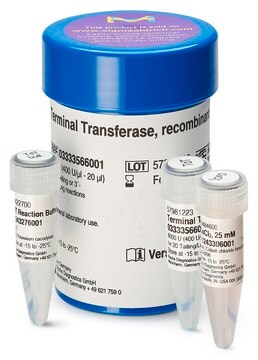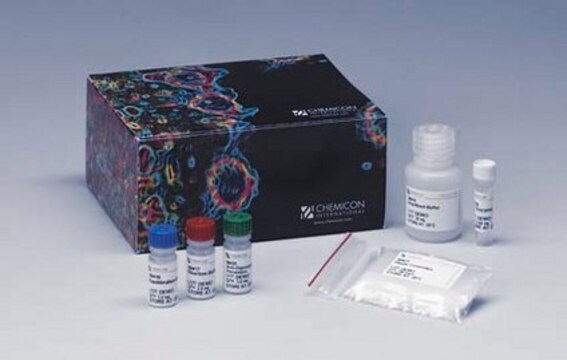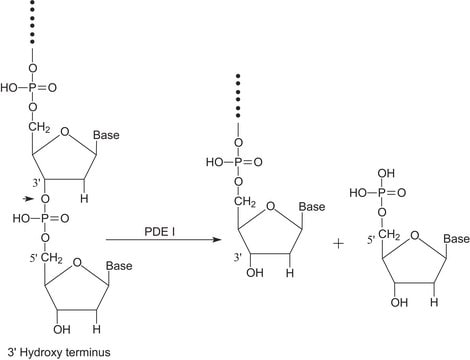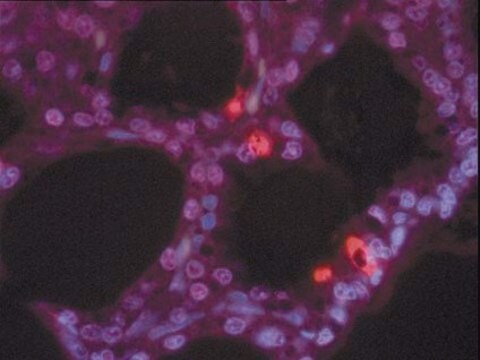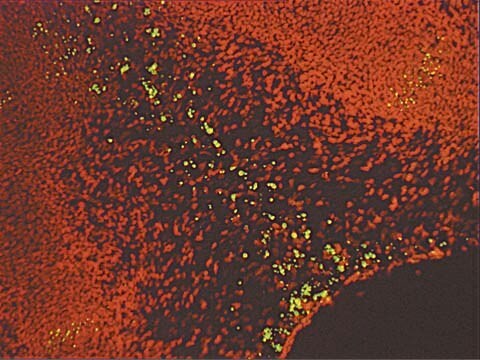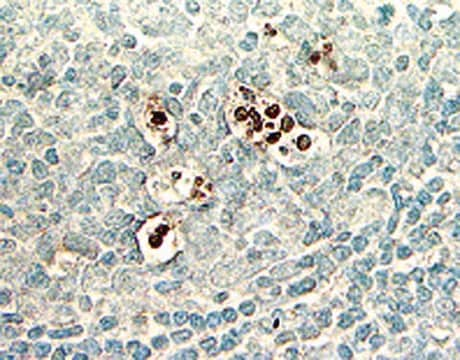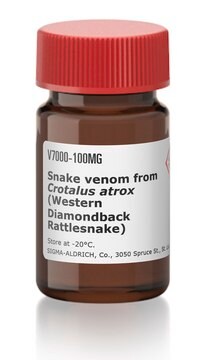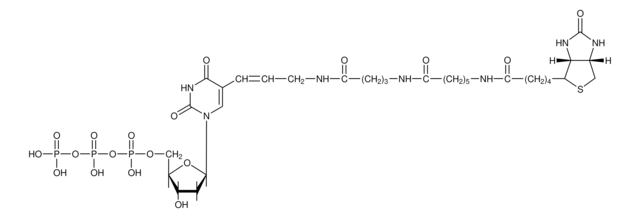S7107
ApopTag TdT Enzyme
ApopTag Terminal deoxynucleotidyl Transferase (TdT) is a recombinant enzyme intended for use in labeling the 3′-OH ends of fragmented DNA during apoptotic cell detection.
Synonym(s):
TdT enzyme, Terminal deoxynucleotidyl transferase
About This Item
Recommended Products
General description
ApopTag is a registered trademark of Serologicals Company.
Application
Each vial contains 300 μl of ApopTag Terminal Transferase (TdT) Enzyme.
Instructions for Use
Prepare labeling mixture as follows:
77 μl ApopTag Reaction Buffer (S7105 or kit component # 02)
33 μl ApopTag TdT Enzyme
Mix well and keep on ice. This reagent may be prepared in advance and stored on ice for no more than 6 hours. The Reaction Buffer - TdT Enzyme mixture is ready for use at the "APPLY WORKING STRENGTH TdT ENZYME" step in The Complete ApopTag Manual.
Warnings and Precautions :
ApopTag Terminal Transferase (TdT) Enzyme contains potassium cacodylate (dimethylarsinic acid) as a buffer. This material is harmful if swallowed; avoid contact with skin and eyes (wear gloves, glasses); wash areas of contact immediately.
Packaging
Storage and Stability
Legal Information
Disclaimer
Signal Word
Danger
Hazard Statements
Precautionary Statements
Hazard Classifications
Aquatic Chronic 2 - Carc. 1B
Storage Class Code
6.1C - Combustible acute toxic Cat.3 / toxic compounds or compounds which causing chronic effects
WGK
WGK 3
Regulatory Listings
Regulatory Listings are mainly provided for chemical products. Only limited information can be provided here for non-chemical products. No entry means none of the components are listed. It is the user’s obligation to ensure the safe and legal use of the product.
PDSCL
Deleterious substance
Poisonous substance
ISHL Indicated Name
Substances Subject to be Indicated Names
ISHL Notified Names
Substances Subject to be Notified Names
JAN Code
S7107:
S7107-K:
Certificates of Analysis (COA)
Search for Certificates of Analysis (COA) by entering the products Lot/Batch Number. Lot and Batch Numbers can be found on a product’s label following the words ‘Lot’ or ‘Batch’.
Already Own This Product?
Find documentation for the products that you have recently purchased in the Document Library.
Customers Also Viewed
Our team of scientists has experience in all areas of research including Life Science, Material Science, Chemical Synthesis, Chromatography, Analytical and many others.
Contact Technical Service